ABOUT CSN
OUR METHODOLOGY
OUR METHODOLOGY
Caribbean Studies Network (CSN) is a platform that unites researchers and members of Caribbean communities in the insular and continental Caribbean, including their respective diasporas. Our main purpose is to develop projects based on the knowledge born from those same communities in order to generate self-management and avoid colonial models of social and economic development.
Therefore, CSN functions as a bridge between Caribbean cultural production outside the academy and academic studies led by undergraduate students anywhere in the world. The collaborative works we publish are guided by academic mentors and members of the communities or organizations on which each research focuses. Our network uses methodologies that are appropriate, socially just and specific to the intended audience.
We define “Caribbean communities” as the system of relationships within societies in which the concept of personhood is recognized. This system includes the family and extends to the original commitment to human, ecological and spiritual relationships that have marked the millenary knowledge of our aboriginal peoples, and that has influenced every social struggle for rights, equality, and democratic participation of every Caribbean-made space within its geographic boundaries and migrations.
CSN defines community as the concept of organization and social welfare practiced throughout Caribbean history from pre-Columbian Arawak groups, to African and indigenous Maroon networks, and used today by LGBTQ and Afro-descendant collectives (among many others). This is the concept of community that frames our research approaches, inspired by the proposals of Caribbean intellectuals such as the Cuban linguist, Mercedes Causse Cathcart, and the postcolonialist theories of international scholars Gregory A. Cajete (Native American, Tewa) and Ranjan Datta (Bangladeshi) in their respective disciplines. In sum, Caribbean communities are those structures and support mechanisms that emphasize both personal responsibility to collective existence and collective responsibility to the individual. Reassessing the philosophical and operational framework of each project is a primary step to (1) decolonize knowledge about the Caribbean, and (2) train citizens and professionals from all fields to responsibly expand the results of their intellectual and civic labor, (3) connect teams for collaborative research and publication, and (4) make these publications available to the largest number of interested people globally.
CSN approaches the study of the Caribbean from a local perspective with international and trans-Caribbean projections (referring to the processes of cultural exchange between communities anchored in different Caribbean nations), and maintains an interdisciplinary and broadly collaborative framework. Each project and collection published in this network:
(1) represents a selfless effort with the integrity and ethics of the research process that reflects the dynamism and plurality of the Caribbean (and).
(2) privileges self-management, leaving aside the prominence of European and US American theories in the intellectual production to analyze the “raw material” of the Caribbean.
For this reason, CSN’s interactive and continuously developing platform does not reserve any copyright on the published works, whose intellectual property is exclusive to the researchers. CSN seeks to create thematic projects that connect the international academy with Caribbean communities, assigning them equal importance and agency, and thus removing the colonial lens that permeates knowledge about the Caribbean. These colonial lenses limit the Caribbean to the role of victim of tourist exploitation or natural disasters, and deny its power as the author of its own history.
CSN has as its intellectual base the Caribbean philosophical currents represented by Michel Rolph-Trouillot, Aime Cesaire, Stuart Hall, Edwidge Danticat, Edouard Glissant and Yolanda Martinez San Miguel, among others, but prioritizes the experience and work of civic collectives and independent agents in the Caribbean. The role of academics in CSN is to amplify the voices represented in each project without appropriating them, and to avoid the typically unequal relationship of intellectual authority between the one who studies and the one who is studied.
For this reason, Caribbean Studies Network does not represent the official voices of any particular government, international governmental organizations or private companies; our operational framework embraces the collective voices of students, community leaders, non-profit organizations, and members of civic (non-governmental) organizations that empower their members to manage knowledge and promote social change. In this process we create permanent, interactive and sustainable media archives that are often lost over time due to the ephemerality of digital memory in social networks and censorship by official media.
We have chosen to highlight the important work of undergraduate research in all vocations, taking advantage of new technologies and social networks that enable the social and economic development of Caribbean peoples. CSN’s methodology promotes the democratic circulation of ideas from every profession and in every trench, without distinction of race, social class, gender, or the limitations imposed by traditional academia.
With this in mind, each project has been edited and reviewed by a team of volunteers trained in both the subject matter of each project and our CSN methodology on the importance of the integrity of the primary and secondary sources of information in each investigation. By invoking Caribbean communities as the engine of our social engagement we move away from national boundaries or nativist notions of Caribbean identity. CSN embraces the inclusiveness and enormous diversity of the Caribbean in all its expressions. We reject cultural appropriation and the role of the “white savior” that permeates social development narratives in the Caribbean.
NUESTRA METODOLOGÍA
Caribbean Studies Network o la Red de Estudios Caribeños (CSN por sus siglas en inglés) es una plataforma que unifica investigadores y miembros de comunidades caribeñas en el Caribe insular y continental, incluyendo a sus respectivas diásporas. Nuestra finalidad principal es desarrollar proyectos basados en el conocimiento nacido de esas mismas comunidades para generar autogestión y evitar modelos coloniales de desarrollo social y económico.
Por lo tanto, CSN funciona como un puente entre la producción cultural caribeña fuera de la academia y los estudios académicos liderados por estudiantes subgraduados en cualquier parte del mundo. Los trabajos colaborativos que publicamos son guiados por mentores académicos y miembros de las comunidades u organizaciones en las que se enfoca cada una de las investigaciones. Nuestra red utiliza metodologías apropiadas, socialmente justas y específicas para la audiencia destinada.
Definimos “comunidades caribeñas” como el sistema de relaciones dentro de las sociedades en las que se reconoce el concepto de persona. Este sistema incluye la familia y se extiende al compromiso original en las relaciones humanas, ecológicas y espirituales que han marcado el conocimiento milenario de nuestros pueblos aborígenes, y que ha influenciado cada lucha social por derechos, igualdad, y participación democrática de cada espacio hecho Caribe dentro de sus fronteras geográficas y sus migraciones.
CSN define comunidad como el concepto de organización y bienestar social practicado a través de la historia del Caribe desde los grupos arahuacos precolombinos, hasta redes de cimarrones africanos e indígenas, y empleado hoy por colectivos LGBTQ y afrodescendientes (entre tantos otros). Este es el concepto de comunidad que enmarca nuestros acercamientos a la investigación, inspirados en las propuestas de intelectuales caribeñas tales como la lingüista cubana, Mercedes Causse Cathcart, y las teorías poscolonialistas de académicos internacionales Gregory A. Cajete (nativo americano, Tewa) y Ranjan Datta (Bangladesí) en sus respectivas disciplinas. En síntesis, las comunidades caribeñas son aquellas estructuras y mecanismos de apoyo que enfatizan tanto la responsabilidad personal hacia la existencia colectiva, como la responsabilidad colectiva hacia el individuo. Reevaluar el marco filosófico y operativo de cada proyecto es un paso primordial para descolonizar el conocimiento sobre el Caribe, y (1) entrenar ciudadanos y profesionales de todas las ramas para expandir responsablemente los resultados de su labor intelectual y cívica, (2) conectar equipos de trabajo para la investigación y publicación en colaboración, y (3) hacer llegar estas publicaciones al mayor número de personas interesadas a nivel global son nuestros principales objetivos.
CSN se acerca al estudio del Caribe desde una mirada local con proyecciones internacionales y trans Caribeñas (refiriéndose a los procesos de intercambio cultural entre comunidades ancladas en distintas naciones caribeñas), y mantiene un marco interdisciplinario y ampliamente colaborativo. Cada proyecto y colección publicada en esta red:
(1) representa un esfuerzo desinteresado con la integridad y ética del proceso investigativo que refleje el dinamismo y pluralidad del Caribe (y)
(2) privilegia la autogestión, dejando de lado el protagonismo de las teorías europeas y estadounidenses en la producción intelectual para analizar la “materia prima” del Caribe.
Por este motivo, la plataforma interactiva y en continuo desarrollo de CSN no se reserva ningún derecho de autoría sobre los trabajos publicados, cuya propiedad intelectual es exclusiva de lo/a/es investigadores. CSN busca crear proyectos temáticos que conecten a la academia internacional con las comunidades caribeñas, asignándoles igual importancia y agencia, y removiendo así el lente colonial que permea el conocimiento sobre el Caribe. Estos lentes coloniales limitan al Caribe a un rol de víctima de explotación turística o desastres naturales, y niega su poder como autor de su propia historia.
CSN tiene como base intelectual las corrientes filosóficas caribeñas representadas por Michel Rolph-Trouillot, Aime Cesaire, Stuart Hall, Edwidge Danticat, Edouard Glissant y Yolanda Martínez San Miguel, entre otro/a/es, pero prioriza la experiencia y la labor de colectivos cívicos y agentes independientes en el Caribe. El rol de los académicos en CSN es amplificar las voces representadas en cada proyecto sin apropiarse de ellas, y evitar la relación de autoridad intelectual típicamente desigual entre quien estudia y quien es estudiado/a/e.
Por este motivo, Caribbean Studies Network tampoco representa las voces oficiales de ningún gobierno en particular, ni de organizaciones gubernamentales internacionales o empresas privadas; nuestro marco operativo se aferra al colectivo de voces de estudiantes, líderes comunitarios, organizaciones sin fines de lucro, y miembros de organizaciones cívicas (no gubernamentales) que empoderan a sus miembros para gestionar conocimiento y cambio. En este proceso creamos archivos permanentes, interactivos y sostenibles sobre medios de comunicación que suelen perderse con el tiempo debido a lo efímero de la memoria digital en las redes sociales y la censura de los medios de comunicación oficiales.
Hemos optado por resaltar la importante labor de la investigación subgraduada en todas las vocaciones, aprovechando las nuevas tecnologías y redes sociales que posibilitan el desarrollo social y económico de los pueblos caribeños. La metodología de CSN promueve la circulación democrática de ideas desde cada profesión y en cada trinchera, sin distinción de raza, clase social, género, ni las limitaciones impuestas por la academia tradicional.
Con esto en mente, cada proyecto ha sido editado y revisado por un equipo de voluntario/a/es preparados tanto en el tema de cada proyecto, como en nuestra metodología de CSN sobre la importancia de la integridad de las fuentes de información primarias y secundarias en cada investigación. Al invocar a las comunidades caribeñas como motor de nuestro compromiso social nos alejamos de las fronteras nacionales o de las nociones nativistas de identidad caribeña. CSN abraza la inclusividad y enorme diversidad del Caribe en todas sus expresiones. Rechazamos la apropiación cultural y el rol del ¨salvador blanco¨ que permea las narrativas de desarrollo social en el Caribe.
CSN TEAM
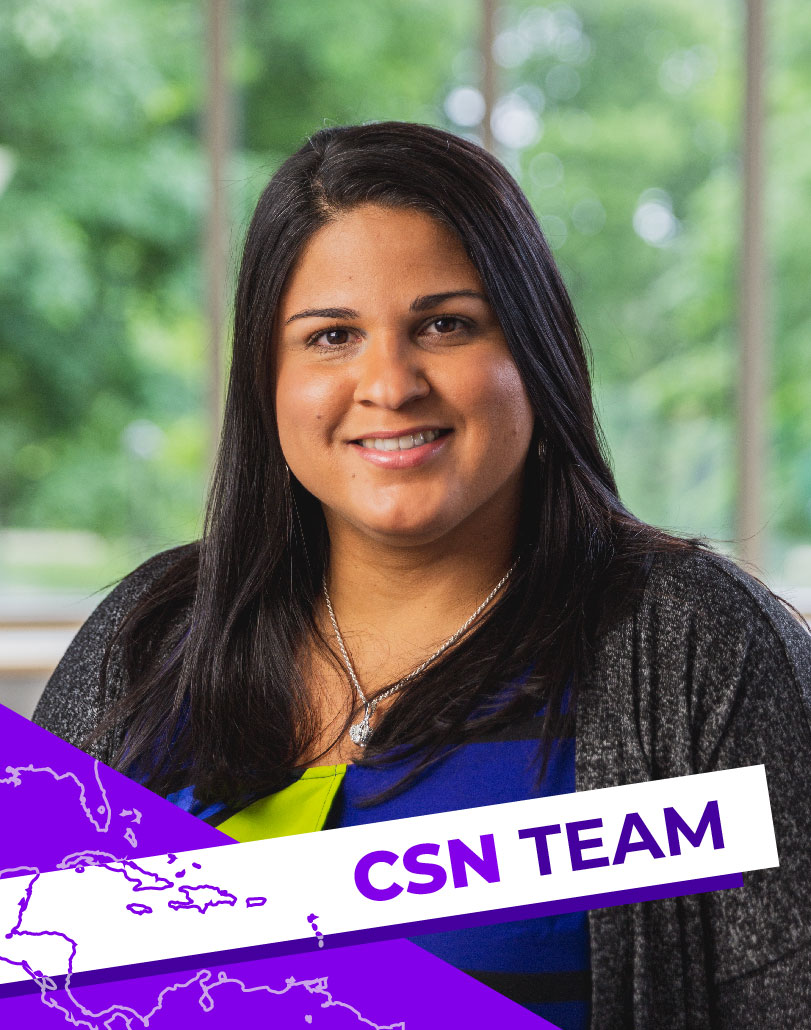
kRISTINA mEDINA vILARIÑO, Ph.D
Founder / Director

Jossy Ávila
Summer 2020
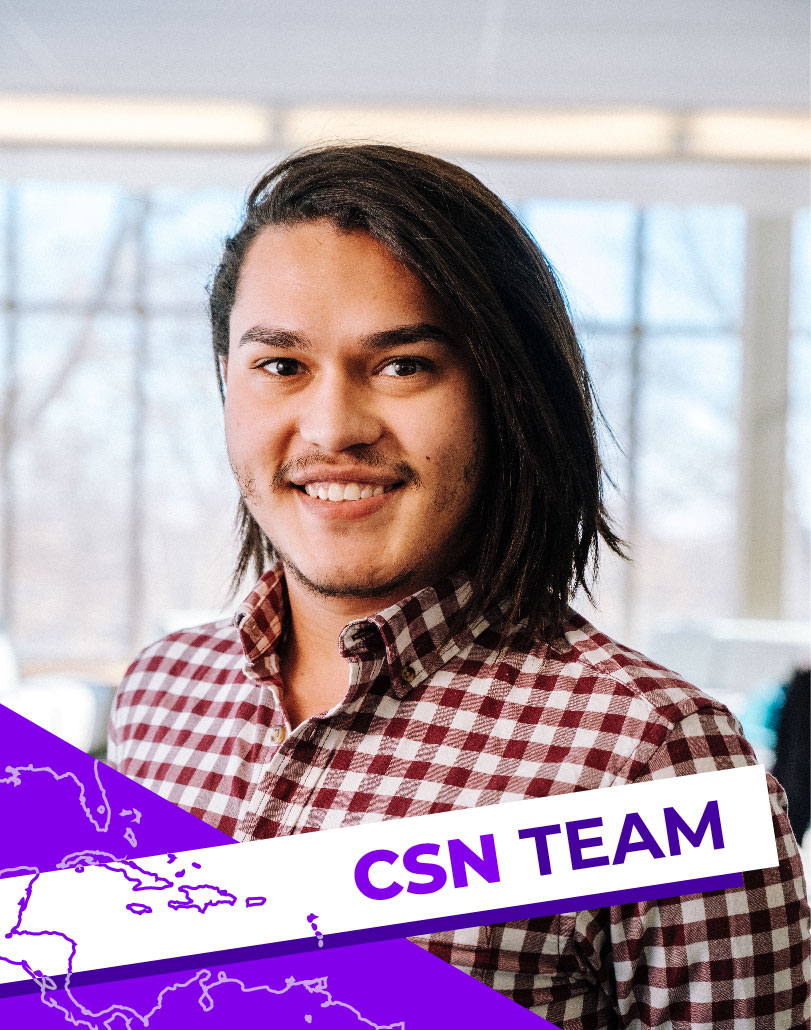
Carlos Fernández
Summer 2019-20
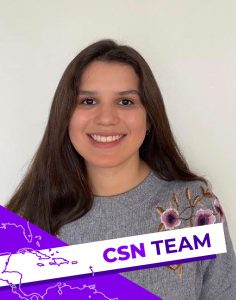
Jimena Fernández
Summer 2020
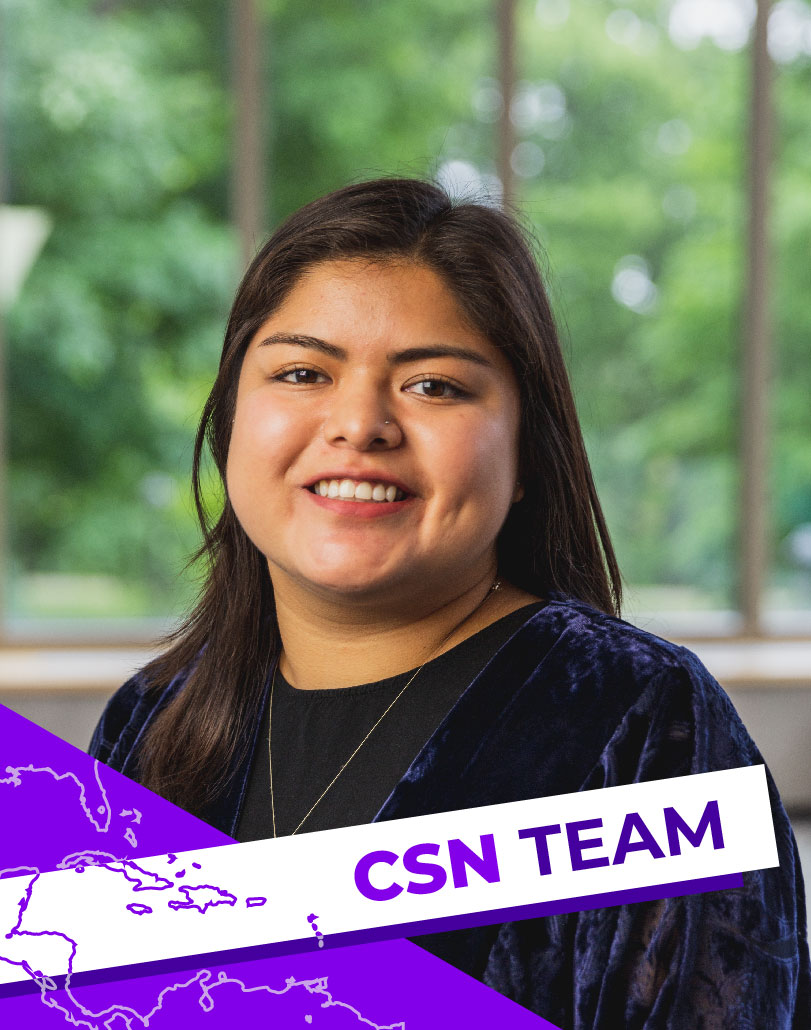
Leslie Rodriguez-Vazquez
Summer 2019
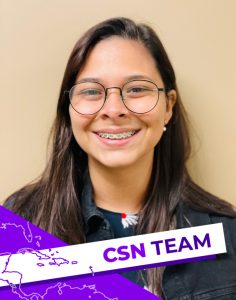
Alicia Henriquez
Summer 2020-21
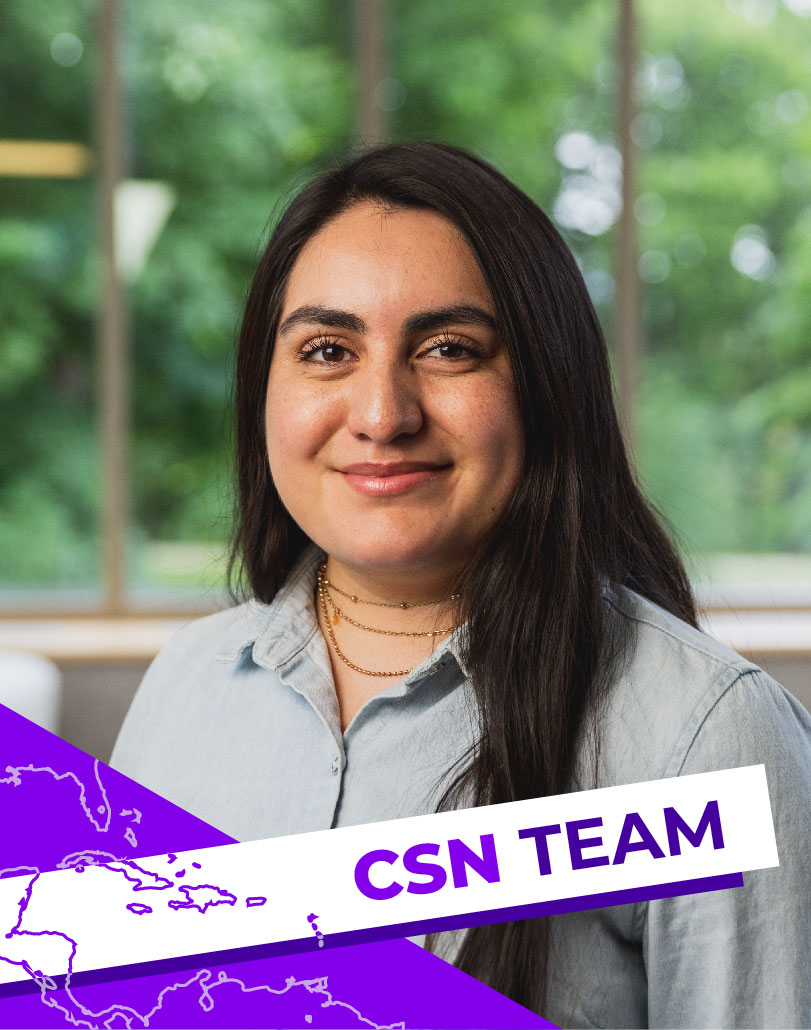
Camila Avila-Martinez
Summer 2019
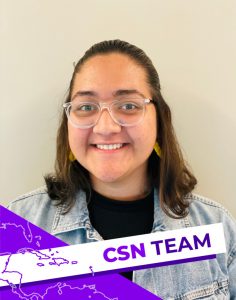
Nazareth Salazar-Toruño
Summer 2021
Get in Touch
This project grows with you. Get in touch with our team and collaborate with us.
